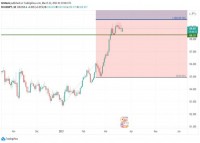|
Opalesque Industry Update -- Morningstar, Inc., a provider of independent investment research, today reported preliminary hedge fund performance for the fourth quarter and year-end 2009 and asset flows through November. Although December proved relatively uneventful for hedge funds, 2009 turned out to be the best year since 2003. The Morningstar 1000 Hedge Fund Index gained only 0.1% in December, but ended the year up 19.5%, missing 2003's 20.3% rise by a small margin. Similarly, the currency-hedged Morningstar MSCI Hedge Fund Index rose just 0.2% in December, but finished the year up 14.1%. The second and third quarters of 2009 generated the most profit for hedge funds, as the global recovery in stocks and bonds waned toward year end. The Morningstar 1000 Hedge Fund Index and the Morningstar MSCI Hedge Fund Index rose 2.1% and 1.9%, respectively, in the fourth quarter, while the MSCI World Stock Index gained 4.1% and the BarCap Global Aggregate Bond Index declined 0.9% over the same period. "2009 was a windfall year for hedge funds," said Nadia Papagiannis, alternative investment strategist at Morningstar. "The hedge funds that survived 2008's industry purge, or those that launched in the aftermath, picked up assets at rock-bottom prices and rode the recovery to near record profits, particularly in U.S. equity and debt markets." The least successful strategies of 2008 became the most profitable in 2009. The Morningstar Emerging Market Equity Hedge Fund Index took the largest hit in 2008, declining 45.7%, but rose 50.4% in 2009. The currency-hedged Morningstar MSCI Emerging Markets Hedge Fund Index increased 1.7% in December, and 37.1% for the year. The Morningstar U.S. Small Cap Equity Hedge Fund Index finished as the second-worse performing strategy in 2008, dropping 32.8%, but the third best in 2009, rising 36.4%. These hedged-equity strategies suffered from poor liquidity in 2008, but regained strength as liquidity returned to the markets in 2009. However, it's notable that the average emerging market or small-cap equity hedge fund has not yet recovered from 2008's losses. Convertible arbitrage was among 2008's worst-performing strategies, but it was 2009's second-best strategy. The Morningstar Convertible Arbitrage Hedge Fund Index rose 2.1% in December, and more than 37% in 2009, as many convertible-arbitrage hedge funds were wiped out in 2008, leaving opportunity for those that remained in the market. Merger-arbitrage strategies saw a similar fallout in 2008, as broken merger deals and investor redemptions caused the liquidation of many of these hedge funds. In 2009, however, merger activity picked up slowly, and reduced competition in merger-arbitrage trades allowed for outsized profits. The Morningstar Corporate Actions Hedge Fund Index, which includes merger arbitrage hedge funds, rose 0.3% in December and 30.0% for the year. Some hedge fund strategies, though, experienced unimpressive returns in 2009. The Morningstar Short Equity Hedge Fund Index and the Morningstar Global Trend Hedge Fund Index each fell 3.1% in December, ending the year down 1.4% and 1.5%, respectively. Substantial rebounds in the global equity markets hurt those hedge funds that take bets on declining stocks. Global Trend hedge funds, which profit from momentum or price trends in currencies, interest rates, stocks, and commodities, were challenged when price trends reversed in many of these markets throughout the year. Ironically, these same strategies were the only two that protected wealth in 2008. Although outflows from hedge funds in Morningstar's database netted $53.4 billion for the year through November, positive inflows started in June as redemption gates lifted and market conditions improved. Most recently, hedge funds enjoyed $4.7 billion of inflows in November 2009, led by Europe Equity, U.S. Equity, Multi-Strategy, and Global Non-Trend hedge funds, which bet on macro-economic themes. Other notable trends for the year include the outperformance of small hedge funds over large and single-manager hedge funds over funds of hedge funds. The Morningstar MSCI Composite Small Fund Hedge Fund Index jumped 21.5% in 2009, while the Morningstar MSCI Composite Core Fund Hedge Fund Index increased only 16.5%. Funds with smaller assets under management can more easily take advantage of riskier, smaller, and less-liquid investment opportunities. The Morningstar Hedge Fund of Fund Index underperformed single-manager multi-strategy hedge funds (as measured by the Morningstar Multi-Strategy Hedge Fund Index) in 2009 by a wide margin of more than nine percentage points. Hedge funds of funds came under fierce criticism after poor performance and scandal in 2008, and 2009's results didn't help to bolster their market share. December returns and November asset flows for the Morningstar Hedge Fund Indexes are based on funds that reported as of Jan. 20, 2010. Returns for the Morningstar MSCI Hedge Fund Indexes are based on funds that reported December performance as of Jan. 15, 2010. Hedge fund investors, managers, consultants, and advisors can access additional information through the Morningstar(R) Alternative Investment Center(SM), formerly Morningstar(R) Altvest(SM), the company's research platform designed specifically for hedge funds. Morningstar has approximately 8,000 hedge funds and funds of hedge funds in its database. Morningstar, Inc. is a leading provider of independent investment research in North America, Europe, Australia, and Asia. Visit http://alternativeinvestments.morningstar.com for more information and here for performance tables.
|
Industry Updates
Morningstar 1000 Hedge Fund Index up 19.5% in 2009, best year since 2003, funds enjoyed $4.7bn of inflows in Nov-09
Friday, January 22, 2010
|
|





 RSS
RSS







